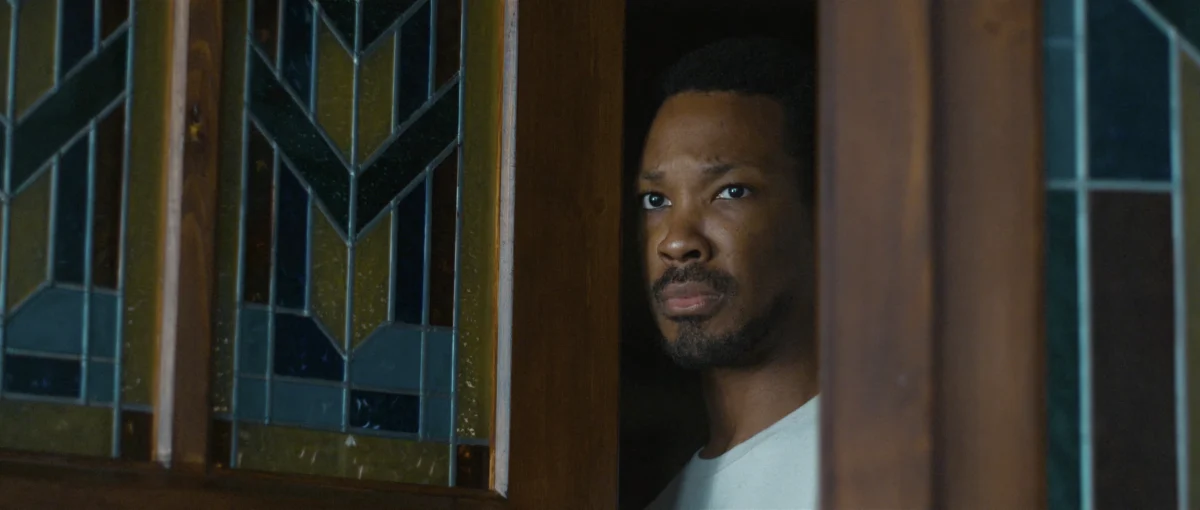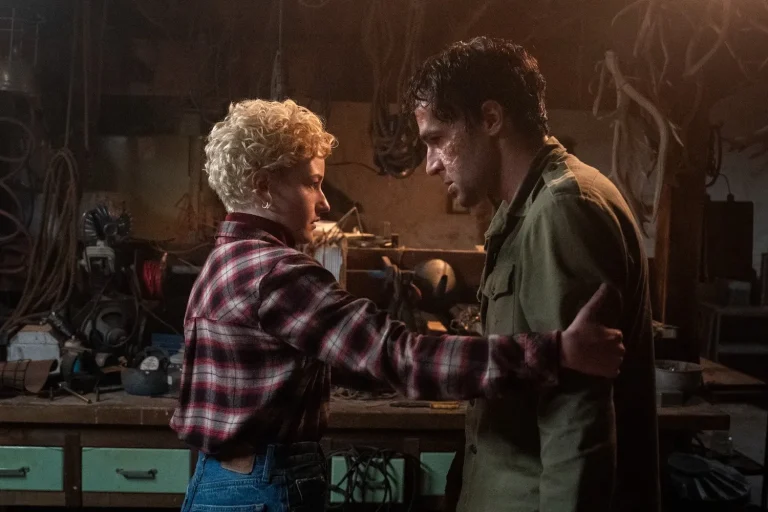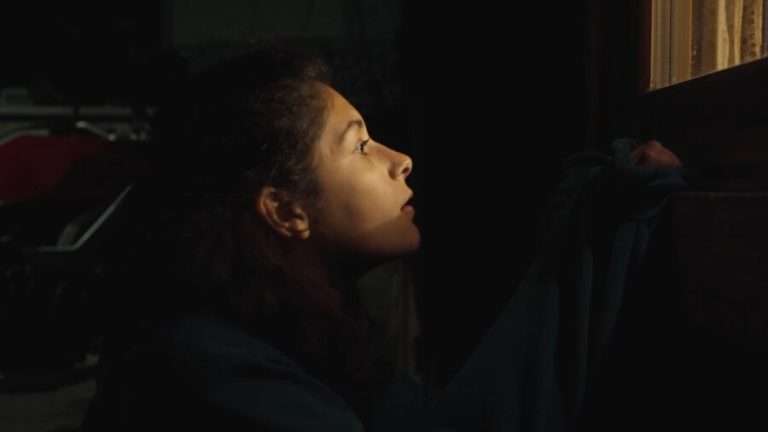There are multiple great ideas within “The Man in My Basement” (2025) that are often quite effective when taken in isolation. As with many adaptations of popular novels, “The Man in My Basement” is bursting with details that clearly would have more significance to those well-versed in the material. Director Nadia Latif is confident in keeping the pace gradual and at times finds moments of serenity within quiet contemplation. Unfortunately, the film’s pacing crawls to a halt once it’s revealed that the literal interpretation of its themes may have worked better had they remained ambiguous.
“The Man in My Basement” follows the young homeowner Charles Blakey (Corey Hawkins), who is desperate to retain ownership of a historic home that has belonged to his family for generations. Facing financial burdens and unexpected setbacks, Charles accepts an unusual offer from the eccentric businessman Anniston Bennet (Willem Dafoe).
Although he had initially claimed to be interested in renting the property, Bennet’s real goal is to remain trapped in Charles’s basement and given only a modest allotment of food, supplies, and reading materials. Charles’ relationship with Bennet goes from curious to confrontational when the older man shows that he has far more knowledge of the property than he had initially disclosed. However, Charles’ mind is overwhelmed by a series of discoveries deep in the basement, which point to a family history that he was never aware of.
The core theme of “The Man in My Basement” is the double-edged sword of lineage and history. While Charles is keen to learn that there are precious African artifacts that belonged to his ancestors, he begins exploring them with the knowledge that these items have been entrenched in violence. Charles’ mixed reaction to his own family timeline is diametrically opposed to Bennet, who has offered few details about where he came from. Despite being separated by race, age, class, and worldly experience, Charles and Bennet are united by a shared sense of guilt over traumatic incidents within their respective paths.

Also read: The 22 Best Hulu Original Films, Ranked
The isolation and confinement of the living space in “The Man in My Basement” extend to the film’s composition, as Latif rarely strays outside the confines of Charles’s detail-oriented attempts to salvage his possessions. The rare hints at what his life may look like outside of service and work paint a grim portrayal of the pressures put upon this generation of African Americans, as both systematic and cultural barriers block his attempts to become self-actualized.
Although Hawkins is very compelling, “The Man in My Basement” fails to give him something to do once its second hour begins. Once Charles becomes wise to the situation, his process of connecting the clues becomes laborious to watch.
Although he’s often typecast in the role of idiosyncratic loners, Dafoe is well-utilized in “The Man in My Basement,” as he can show Bennet’s sinister interiority without chewing the scenery. Even if it becomes rather clear how Bennet factors into the twist very early on, Dafoe avoids heightening his frightening features in the vein of his work in “The Lighthouse” or “Spider-Man.” It helps that there’s a tragic, self-loathing component to Bennet that comes across when his intellectual superiority is questioned. Even if “The Man in My Basement” is rather light on scares, it becomes far more interesting when it positions itself as a psychological drama.
The camerawork is delicate, albeit unflashy, but “The Man in My Basement” is at its best when it’s confined to scenes of Hawkins and Dafoe talking. While their conversations often become broad discussions about the role that historical pillaging and locational ownership have played within the assets that they both strive to attain, the dialogue feels more emotional as a result of the complex motivations each character has.
It only becomes disappointing when “The Man in My Basement” becomes more straightforward in its final moments. Given that the topics at hand are too enormous to resolve with two characters, “The Man in My Basement” twists itself into circles, attempting to justify its mixed metaphors.

While You’re Here: 10 Great Psychological Thriller Movies You Can Stream on Hulu Right Now
The pacing is even more glacial as a result of Charles’s dynamic with the potential love interest Narciss Gully (Anna Diop), who seems inserted into the narrative purely to help him reach philosophical conclusions. Details about Charles’ immediate family history are also rather unengaging, as the film’s only means of exposition is a series of expositional chunks.
Although the borderline surrealist presence of Bennet gives “The Man in My Basement” an off-kilter vibe that doesn’t necessarily require a supernatural component, that tension begins to fade away as a result of a nearly two-hour running time. Considering the sparsity of the narrative and the lack of strong supporting characters, there’s no reason that “The Man in My Basement” couldn’t have been a leaner, meaner 90 minutes.
“The Man in My Basement” is both more fruitful and more frustrating when looked at as a reflective portrayal of America’s historical sins. The New England setting is fertile, and direct historical connections are made that make the fictional components feel more grounded. However, there are also instances in which the undertones are blatantly stated without a hint of subtlety. There are also moments in which the film seems to hint at a broader theme that connects isolated incidents, many of which only exist to name a potentially buzzworthy debate topic.
“The Man in My Basement” doesn’t fully succeed in developing the ideas that it invokes, but it’s also more self-confident than the many other issue-oriented genre films seen in the last decade. Rarely does the film allude to historical injustices for the sake of cheap jump scares, as the few moments in which it weaves in genuine body horror are legitimately upsetting. Hawkins has the inherent charisma needed to give Charles’ personal journey more weight, and Dafoe’s performance is surprisingly nuanced once more details on his background come to light.
“The Man in My Basement” is probably the best version of the source text that readers could have asked for, which itself points to the challenge of adapting a story that is inherently more compelling on the page.




![Guns Akimbo [2020] Review: A frantically shot lowbrow dark comedy about rampant gamer culture](https://79468c92.delivery.rocketcdn.me/wp-content/uploads/2020/03/Guns-Akimbo-highonfilms2-768x318.jpg)
![This Is Not Berlin [2019]: ‘Tribeca’ Review: The Outsiders](https://79468c92.delivery.rocketcdn.me/wp-content/uploads/2019/05/this-is-not-berlin-1-768x385.jpg)


![Posham Pa [2019] Zee5 Review – An unsatisfactory real-life documentation](https://79468c92.delivery.rocketcdn.me/wp-content/uploads/2019/09/Posham-Pa-Zee5-768x432.jpg)